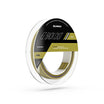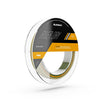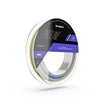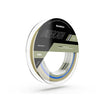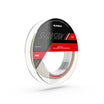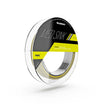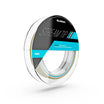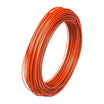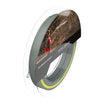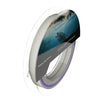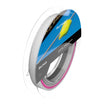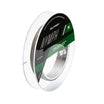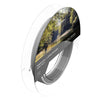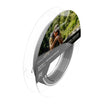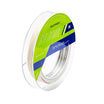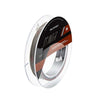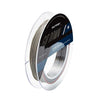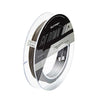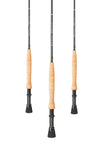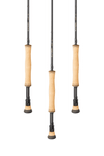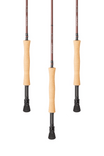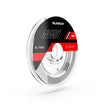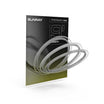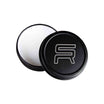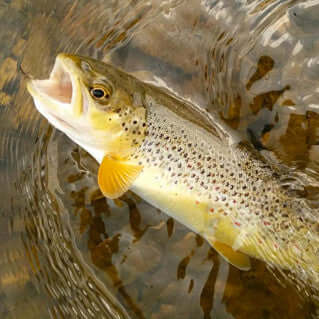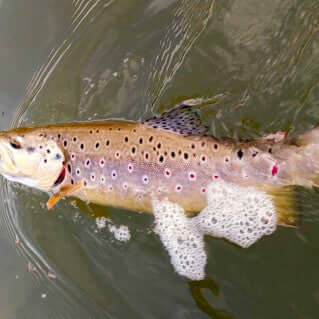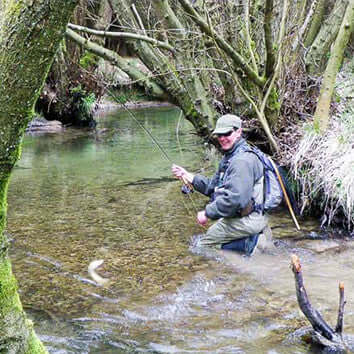It has been Cathartic. Spring on a restructured river, watching the hatches develop and the trout kissing away the bounty; trout in numbers, throughout the age-ranges, with giants among them. Large and medium dark olives, and phenomenal shows of March browns (the best I have ever observed, anywhere); then iron blues and medium olives, a peppering of large brook duns, a blitz of danicas, olive uprights and yellow Mays, and, the whisper of pale wateries and spurwings. There have been some days when I have counted six different species of upwing, hatching simultaneously (in their fascinating micro-habitats), along with grannom caddis and various stoneflies, none of which have entertained the trout, and falls of aphids, midges, black gnats and hawthorns, which often do.
I have seen feeding with abandon, and then extraordinarily subtle and selective feeding, always to the smallest food-forms that are available. The banks have bloomed, covering the scars of agricultural abuse; nature fighting back as only she can. How beautiful this is; smothering something so ugly, so destructive and manifest of our species, mended by the hand of what is, finally, so much better. And what trout, on the Appleby waters and elsewhere. Always I have referred to Eden as a miracle of a river (thanks in the most part not to how we look after it in conservation terms, but to very high annual rainfall and the large catchment, by English standards) although never before has this seemed more appropriate. I don’t think there can be the possibility of a ‘finer’ trout river in England, not now if ever there was, at least on such a large scale. Sometimes this season, I have struggled to think of anywhere in Europe that surpasses Eden. My thoughts drift to the French chalk, of course, and the wonderful San...
Perhaps I am too close to it, too consumed, too overwhelmed with its survival amidst ferocious forces that contrive to degrade it. Perhaps it is the loyalty of a certain type of love, that’s all. A man’s love for something that is so intrinsically valuable in the natural order of things. Or maybe it is because here is a rare place that is still worth something in England, persisting, 70-odd years since our last defining moment of true greatness in the historic machinations of the world. Or, you might think it’s just me, the way I am. If so, it doesn’t really matter. But if I’m right, it does. It just does.
The ranunculus, one of the ESAC designated protected species, has gone. Almost. High up the feeders, and a few oases on the main river which somehow escaped the scouring of flood waters, it persists. Given decent rain, it will go green again, and spread downstream. I have found some on the beck up near Asby (Eden feeder) and more downstream at Rutter Falls, so it will, it really will, come back. And you know, that scouring swept so much silt from the system, cleansing the river stones and gravels. Except for those farms, that nitrate, and the algae, now dying back and robbing the invertebrates of their habitat of a healthy river bed. The danicas will be alright, of course, so everyone will think everything is fine; but the spurwings, iron blues and blue winged olives, the real benchmarks of a healthy river? Well, perhaps. Eden has taken it this long, and managed to nurture some of the most rarified river habitat surviving in England.

The trout fishing this spring has been as good as I can ever remember it, eschewing the fears we had after the floods. Oddly, among three hundred trout, I have not caught a single grayling since the end of their season, and I know of very few that have been caught. They have been spawning and it is typical of this time of year that they are scarce to the angler, but we always seem to catch a few out-of-season fish; but this year? There were enough around after the floods, so I am not particularly worried. Like the ranunculus, I suspect they will come back in plenty, and probably much sooner.
Then the rain stopped, effectively some time in early May, and the river flow collapsed. As I write, in June, it is almost as low as I have ever seen it, and there are long sections which are little more than still pools, if not stagnant, with feeble run-ins. Heaps of trout though; milling about on the surface, mopping up tiny food forms such as aphids, micro-caddis and spurwing emergers, occasionally attacking the ever-increasing danicas. Is this how rivers die, although it looks like play - the little trout dashing about, sometimes among the gravels of the shoreline, and usually missing their targets? Fascinating fishing; you can be locked on a pod of fish, which can be dozens within casting range, and do everything just about perfectly, only for them to take no notice whatsoever. You can watch the different-sized fish, ranging from 8” up to beasts nudging two feet, and can spend so long at it that you begin to recognize individuals, the subtle differences in their feeding manner and the way they patrol. It reminds me of still water days, years ago.

Typically, you catch a fish immediately, and then, even though fish continue to show, they are different. They don’t look spooked, but they are. Oh, yes, they are. So, you have to up your game, or move elsewhere. I love it like this, notwithstanding the more obvious vitality that higher, faster water brings to the river. Now, you have to observe properly, analyse, move like a hunting cat. Funny how my tired, old joints that normally rebel painfully during other forms of exercise are now no more than background. An awareness, which just makes me move more slowly, and, in fact, more like a predator. You know how I always say that fly fishing involves using one’s whole body. The best river anglers (and this really is just a handful) I have known do this so beautifully; they engage the river, becoming a part of it, rather than something that disturbs it.
After all that maneuvering into position, the stealth, and the observation, all it takes is one cast. Why should it need more? More is inefficient. More is noise. I am using the 10’ #2 with what Tom Bell kindly refers to as ‘my’ line, the #2, and 0.10mm tippet. And, inevitably, the plume tip, in a 21, and very sparse. Simple again.
Oh, by the way, you will still hear a lot about long leaders and tippets. The need for them; though this is nonsense. Or if not nonsense, just a hangover from how things used to be. The status quo has changed. The game has changed. Anglers are going to take a while coming away from the French leader mentality. For that matter they are going to take even longer to escape the conventional, thick fly line mentality, which necessitates the use of a long tapered leader/tippet, just to place the fly far enough away from the disturbance of thick fly line. But it will change, inevitably. With these micro-thin fly lines, which are ‘game changers’, you need no taper in the tippet whatsoever. It is like having a built in leader. Just run between 3’ and a rod length of level tippet directly from the loop of the line tip; the more inclement the conditions, the shorter the tippet.
Though this is an oversimplification of what’s going on. Length of tippet has an enormous, though subtle, effect on presentation. So, I’m just talking generally here. It’s not something I think about, really, tending to adopt, subliminally, the right length of tippet for the moment, though this is always shorter than what anyone can get away with using a conventional line. And in truth, I most commonly use the tippet that was left on the line at the end of yesterday’s session. Start with that loop on the line tip and loop-in a section of tippet that you think you can manage in the conditions, and don’t worry if it seems a bit short. If you’re using a Sunray micro-thin, it probably won’t matter a jot, even on wild fish, particularly on wild fish, which are the only fish that really matter.
In France soon, back on the chalk streams, and different fish, different wild fish. The same approach though; it is universal - well - European, which is as far as I want to go. It’s not that I want to leave Eden, this magnificent river. But I should. I need to leave it like this. I have seen the miracle bloom, and I must not outstay the duration of this most treasured of nature’s gifts. I suppose, thanks to Eden, I understand now what is meant by ‘God, moving over the face of the waters’ and I just need to move on.


